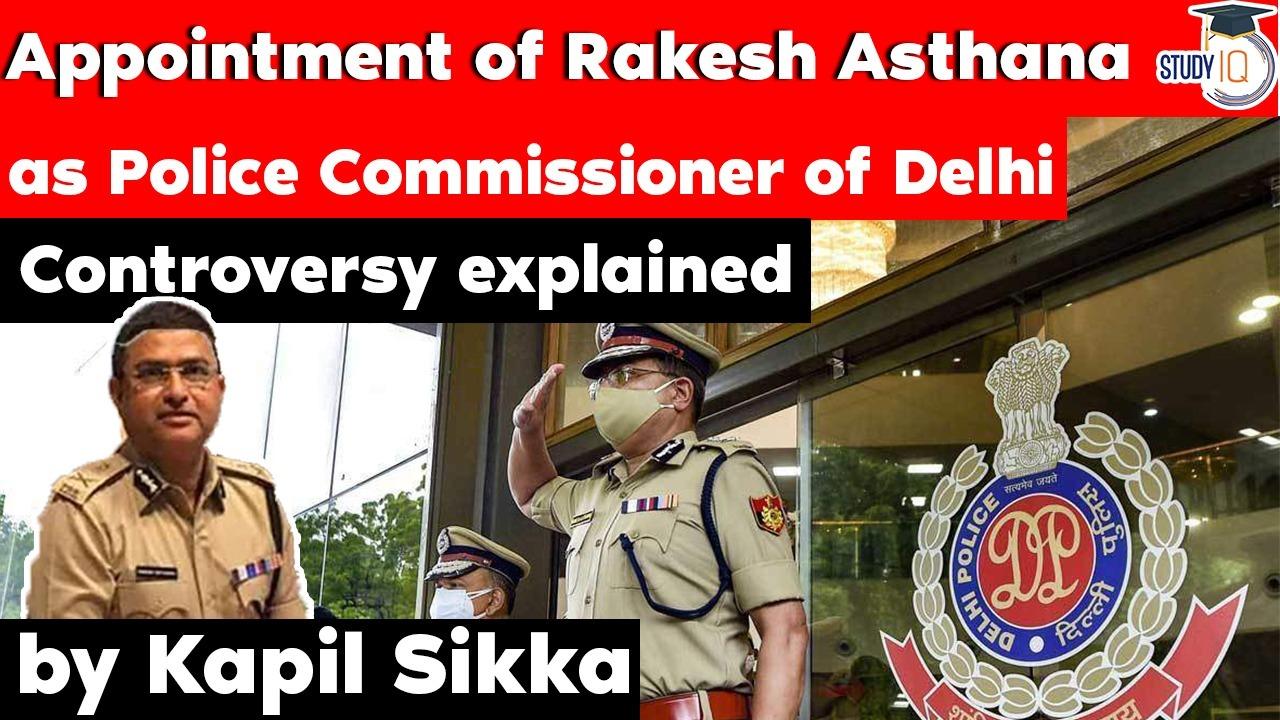Table of Contents





- The central government has shown scant respect to either the Supreme Court or to the police as an institution.
- In one stroke, through the recent posting of the Delhi police chief, the politicians have displayed the ruthless power with which they control civil services.
- The message of them being the “masters” is loud and clear.
Questions Raised
- The Commissioner of Police of any city is the leader of the police force and well acquainted with his/her officers.
- How will an officer, having worked in a particular cadre for 35 years, understand the ethos and culture of another state police cadre during the last year of his service?
- How will he deal with officers and constabulary he knows nothing about or encourage them to put in their best?
- Can it be denied that many within the force would consider him an “outsider” and that many, having worked with other potential contenders to the post, will not resent the one “forced upon” them?
- They see no imminent crisis in Delhi for the handling of which the new Commissioner has special expertise and was thus inducted overnight.
- Nor is there any dearth of competent officers in the Delhi police, if the need so arises.
How are they appointed
- Boards in the states and the involvement of the UPSC in selecting state police chiefs.
- “fixed tenures” for officers who are otherwise at the mercy of local political leaders for postings, transfers and continuation.
Julio Ribeiro
- Contravening Supreme Court guidelines, the officer was appointed Delhi police commissioner only days before he was due to retire.

Principle Discarded
- Rakesh Asthana, an IPS officer of the Gujarat cadre, was appointed Police Commissioner of Delhi on July 27, a few days before he was slated to retire from service.
- The Supreme Court had stipulated in its Prakash Singh judgments that only officers with at least six months remaining before superannuation would be eligible to lead state police forces.

- The Director General of Police of the State shall be selected by the State Government from amongst the three seniormost officers of the Department who have been empanelled for promotion to that rank by the Union Public Service Commission on the basis of their length of service, very good record and range of experience for heading the police force.
- And, once he has been selected for the job, he should have a minimum tenure of at least two years irrespective of his date of superannuation.
- The DGP may, however, be relieved of his responsibilities by the State Government acting in consultation with the State Security Commission consequent upon any action taken against him under the All India Services (Discipline and Appeal) Rules or following his conviction in a court of law in a criminal offence or in a case of corruption, or if he is otherwise incapacitated from discharging his duties.”
- All the States shall send their proposals in anticipation of the vacancies to the Union Public Service Commission, well in time at least three months prior to the date of retirement of the incumbent on the post of Director General of Police
- The Union Public Service Commission shall prepare the panel as per the directions of this Court in the judgment in Prakash Singh’s case and intimate to the States
- The State shall immediately appoint one of the persons from the panel prepared by the Union Public Service Commission
- None of the States shall ever conceive of the idea of appointing any person on the post of Director General of Police on acting basis for there is no concept of acting Director General of Police as per the decision in Prakash Singh’s case
- An endeavour has to be made by all concerned to see that the person who was selected and appointed as the Director General of Police continues despite his date of superannuation.
- However, the extended term beyond the date of superannuation should be a reasonable period
- it has been brought to our notice that some of the States have adopted a practice to appoint the Director General of Police on the last date of retirement as a consequence of which the person continues for two years after his date of superannuation.
- Such a practice will not be in conformity with the spirit of the direction
Latest Burning Issues | Free PDF






















 WhatsApp
WhatsApp